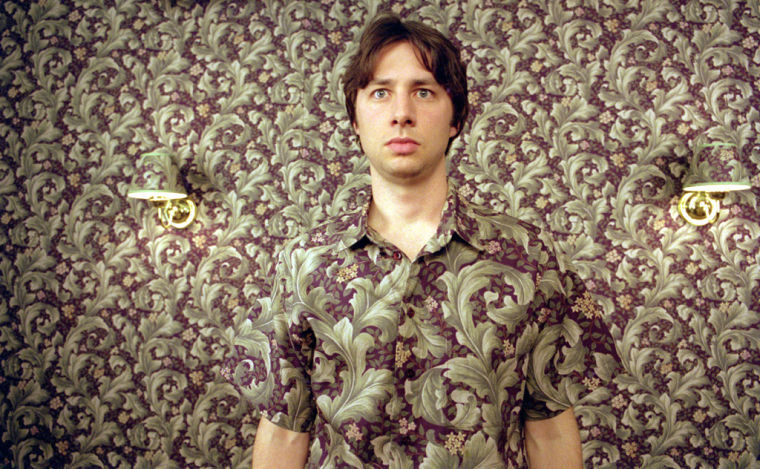
If you hate Zack Braff so much, just don’t give him any money.
When the makers of Cards Against Humanity wanted to get their game off flimsy printer paper and into a professional boxed set, they turned to Kickstarter to fund their project. They raised almost $15,000, far surpassing their initial $4,000 goal. When musician Amanda Palmer took to Kickstarter for $100,000 to cut a new album, she received more than $1 million. In 2012, 19 Kickstarter-funded films made their way to the Sundance Film Festival, according to the site.
And in April, the executive producer of Veronica Mars created a Kickstarter to fund a movie based on the show. It earned more than double its goal of $2 million and became the project with the highest number of backers in the site’s history, according to CNNMoney, with 91,585 donations.
For more than four years, Kickstarter has been an accessible way for artists, inventors and innovators to share and get funding for their ideas. It is free to start a project, and the platform is open to everyone from unknown self-starters with brilliant ideas to well-established entrepreneurs who want a little more creative freedom with their projects than they could get if they sold their ideas to a company.
Enter Zach Braff.
Inspired by the success of the Veronica Mars project and sitting on the script for Wish I Was Here, a spiritual follow-up to his cult hit Garden State, Braff turned to Kickstarter to get funding to create the entire movie himself and retain total creative control.
Less than a week after its launch, Braff’s project had surpassed its $2 million goal. Amid this success, many have questioned whether Braff is right to be asking fans for money when he’s already wealthy and well-connected, especially considering it might be taking money away from another worthy project that lacks other avenues for funding.
But this logic is flawed. As Braf himself points out, no matter how much success he has had in his career on Scrubs and in other ventures, he still doesn’t have enough cash to fund this project himself — though he has said he has sunk a considerable sum into the project, according to the Los Angeles Times. And he is honest in his video introducing the project — he could get it funded in more traditional means, but that could mean taking away the vision of the film that he had imagined while writing.
What those criticizing Braff fail to remember is the high democratization of Kickstarter. All users are allowed to post their projects, and everyone has the potential to succeed or fail on the site. Fans can “vote” with their money, and if the project is a bad idea, it won’t be funded.
Saying that Braff’s project takes money away from other projects is like saying people who go to major arena concerts are taking money away from smaller-venue bands. People will pay for what they want to see, and if the major concerts or projects didn’t exist, people wouldn’t suddenly spend their money on a smaller projects or shows. As Braff pointed out to the Los Angeles Times, many of the people who funded his project were first-time Kickstarter funders, some of whom went on to support other projects. And Braff has done his fair share to promote other projects, too.
Differentiating between who can and can’t begin a Kickstarter is arbitrary and sets bad precedent. And what makes what Braff is doing any worse than what the producers of Veronica Mars did when they turned to Kickstarter for funding?
In the end, people will continue to hate Braff for his actions and his public persona. But those people don’t have to support Wish I Was Here. It’s simple: If you disagree with any start-up project, put your money elsewhere.
diversionsdbk@gmail.com



